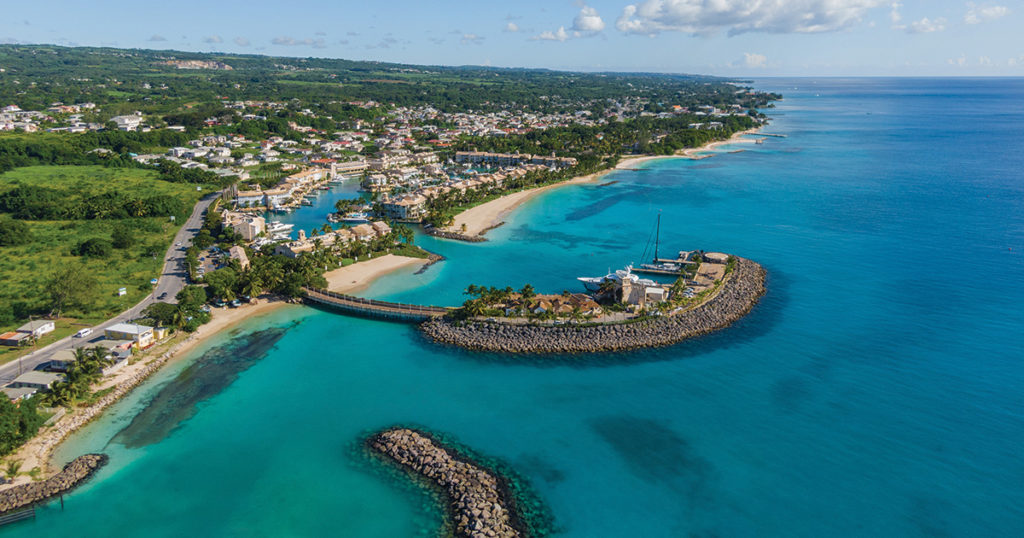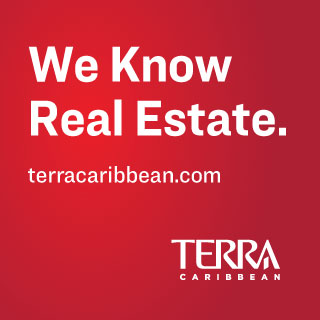A Caribbean View
For buyers, it is the best time to buy in 10 years to achieve value for money.
In a year that has seen wide, global political and fiscal changes, as well as increasingly changeable weather, the key parts of the Caribbean have been relatively stable from a property perspective. In 2019 we witnessed more fires in Malibu and Australia and cyclones from hurricane Dorian in the Bahamas to storms in Japan and Mozambique.
From a real estate perspective, the key parts of the Caribbean markets that we cover, Barbados, Mustique, Bahamas, BVI and St. Barts, have fared differently through 2019 and into 2020.

Barbados, located outside of the hurricane belt, is a market that a couple of years ago experienced its own local political and fiscal wobbles, but is now more stable. The high-end market, mostly along the platinum coast has witnessed an overall significant but gradual correction over the last several years with falling prices (in some cases 30% or more) as a result of diminishing confidence in the island. This trend swung the other way through 2019, with property prices more or less stabilising and with a cautious feel of optimism in light of greater investment coming to the island in the form of new beach clubs and restaurants. Buyer rhetoric on island is also more positive, still deal led, but optimistic. For buyers, it is the best time to buy in 10 years to achieve value for money.
With many of the properties having been for sale on the market for five or more years, and with prices having fallen and interest rates having changed, we are seeing increasingly motivated sellers and so buyers feel like they are getting sensible value for money. Deal volumes, which had also been depressed have picked up notably through 2019 seeing a number of beachfront deals from circa $10m-$15m and further deals at circa $5m inland and on the key golf resorts.
Outlying parts of the Bahamas may have been worst hit by hurricane Dorian, but the high end ‘super estates’ on New Providence and Paradise Island, Old Fort Bay, Ocean Club, Lyford Cay and Albany continue to see strong demand, particularly from buyers from the USA and Canada, but also Europe and wider afield. These secure residential communities have regularly achieved some of the highest prices throughout the Caribbean in recent years.
St. Barts, another island affected by hurricanes in recent years has not seen any reduction in the appetite to buy on the island. Buyers are always initially cautious, but history shows that confidence bounces back fast along with government investment into the infrastructure, whether properties were damaged or not. St. Barts still sets the standard for houses with modern architecture, fun St. Tropez and Mykonos style beach entertainment, restaurants and shopping – plus its superyacht Marina. The issue St. Barts now has is the availability of new housing stock.
The slightly unloved sibling of the bunch in recent years is BVI. Still possessing some of the Caribbean’s most raw beauty, the infrastructure was slow to be repaired and redeveloped after the storms. For real value and buyer opportunity, there is a lot to be said for the BVI, as long as buyers inform themselves and build properties to withstand future storms.
In Mustique, a market buoyed two years ago by its 50th anniversary, in 2018/2019 had a record amount of properties under offer in this period. This previously little known island is becoming more well-known as it evolves and starts to open its doors a little more to the outside world. The historically, publicity shy island is now featuring more in the media and is seeing an increase in buyers. The difference here being that most buyers in Mustique are long term visitors, rather than totally new people to the island, and more of these renters, albeit still a low volume, are now looking to buy in Mustique.
The prevalence of the American and Canadian buyer and renter on the back of a strengthened American economy has been very notable through 2019 and in Mustique, for example, Americans are now the number one rental demographic.
In terms of how British politics have affected the region, the 2019 general election in the UK has probably been most relevant to islands with a high proportion of British buyers or sellers. Barbados as such, is more closely tied to sentiment around economic stability in the UK than most. A Conservative Government 2.0 now in place under Boris Johnson has provided the basis of positive sentiment and alleviated much of the threat of any significant increased property taxes in the UK. However, Brexit has not been finalised and it remains to be seen whether the current increased market confidence will change for real estate investment in the UK through the course of this year. Today, the London property market is experiencing a ‘Boris bounce’, with many who had been waiting to buy or trade in London now having the confidence to do so at all price levels. Global capital is also flooding back into London as a safe haven, enhanced by Middle Eastern turmoil, unrest in Hong Kong, a trade war in China and stalling French and German economies.
The outlook for Barbados and the wider Caribbean, for now, in key, long established locations looks promising.



